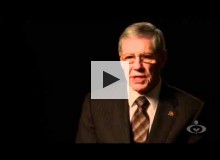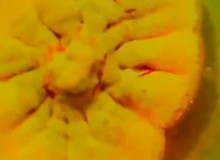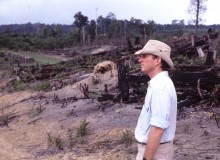Search
Planet Forward
Friday, September 14, 2012
By Chris Potter, Institute for Market Transportation
Tags: Institute for Market Transformation, Chris Potter
Second Nature
Wednesday, May 25, 2011
University of Montana president George Dennison discusses how biomass converters, such as the university's approximately $16 million project, will save his and other institutions money.
Tags: energy, biomass converter, University of Montana
Planet Forward
Wednesday, February 05, 2014
Montana State University research may have cracked the code on food-free biofuel.
Tags: fungus, montana state university, advanced biofuel, food free biofuel, biofuel
Planet Forward
Wednesday, April 12, 2017
Without further ado, the Storyfest 2017 grand prize winners are...
Tags: storyfest2017, contest, summit2017
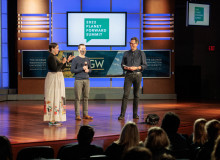
JoRee LaFrance and Alexander Cotnoir, making the Indigenous Correspondents Program announcement at the 2022 Planet Forward Summit in April, on stage with Frank Sesno. (PlanetForward.org)
Planet Forward
Tuesday, September 27, 2022
Planet Forward’s Senior Editor and Education Lead Lisa Palmer talks to Alexander Cotnoir and JoRee LaFrance about the Indigenous Correspondents Program and the future they envision for the program.
Tags: Indigenous, indigenous correspondent program, storytelling, education, environmental justice, nature
Planet Forward
Thursday, March 30, 2017
A Q&A with our finalists in the Innovator category.
Tags: storyfest2017
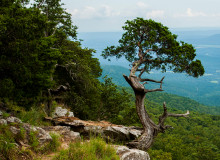
The view from a bluff in the Ponca Wilderness in Compton, Arkansas. These lands, like much of what is now the state of Arkansas, are native to Indigenous peoples including the Osage, Sioux, Quapaw, and Caddo. (Image courtesy of Thomas Shahan/Flickr https://creativecommons.org/licenses/by/2.0/).
Digital Editor, Planet Forward
Tuesday, August 10, 2021
Indigenous professor Dr. Bethany Henry Rosenbaum asked a powerful question: How do we bridge the Indigenous understanding that removal of Native people is still impactful today with the Western understanding that it’s in the past?
Tags: Indigenous Knowledge, environmental justice, bio-cultural restoration, Ecosystems, pollution, education, indigenous peoples

Jordan Welch talks to her grandfather Charlie Payne on July 20 in Concordia. Charlie Payne purchased the Payne family’s land more than 60 years ago, and he still helps out in an advisory capacity on the farm. (Jia Wu/Columbia Missourian)
University of Missouri
Wednesday, February 08, 2023
Climate change is redrawing the agricultural map of the United States. As corn becomes less economically viable with changing Midwestern weather patterns, farmers look to a more diverse future.

